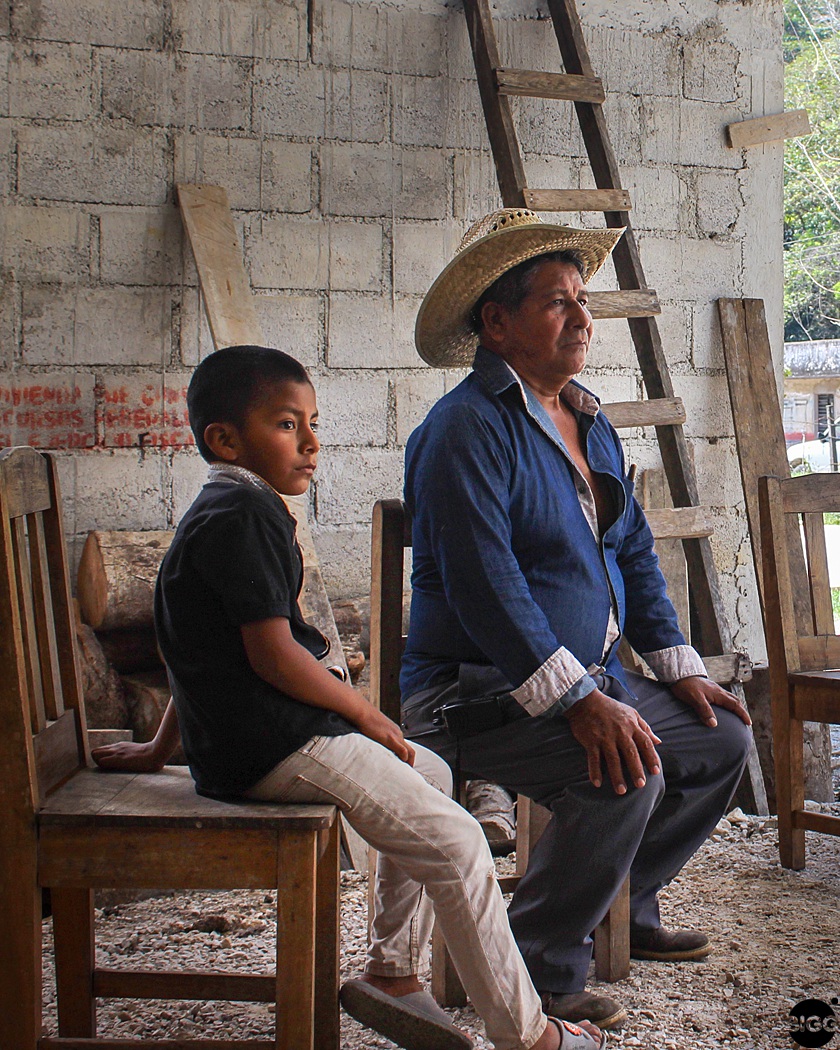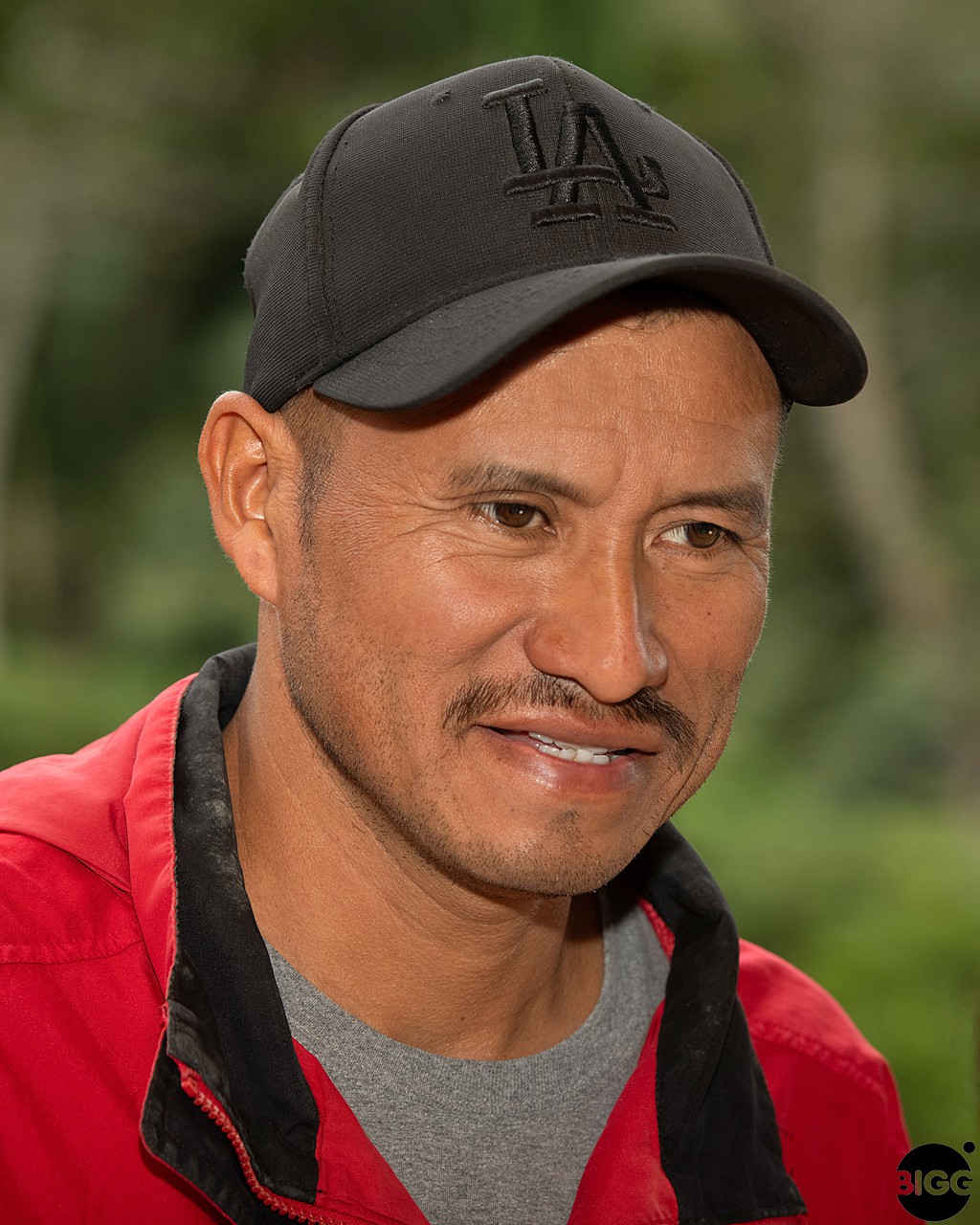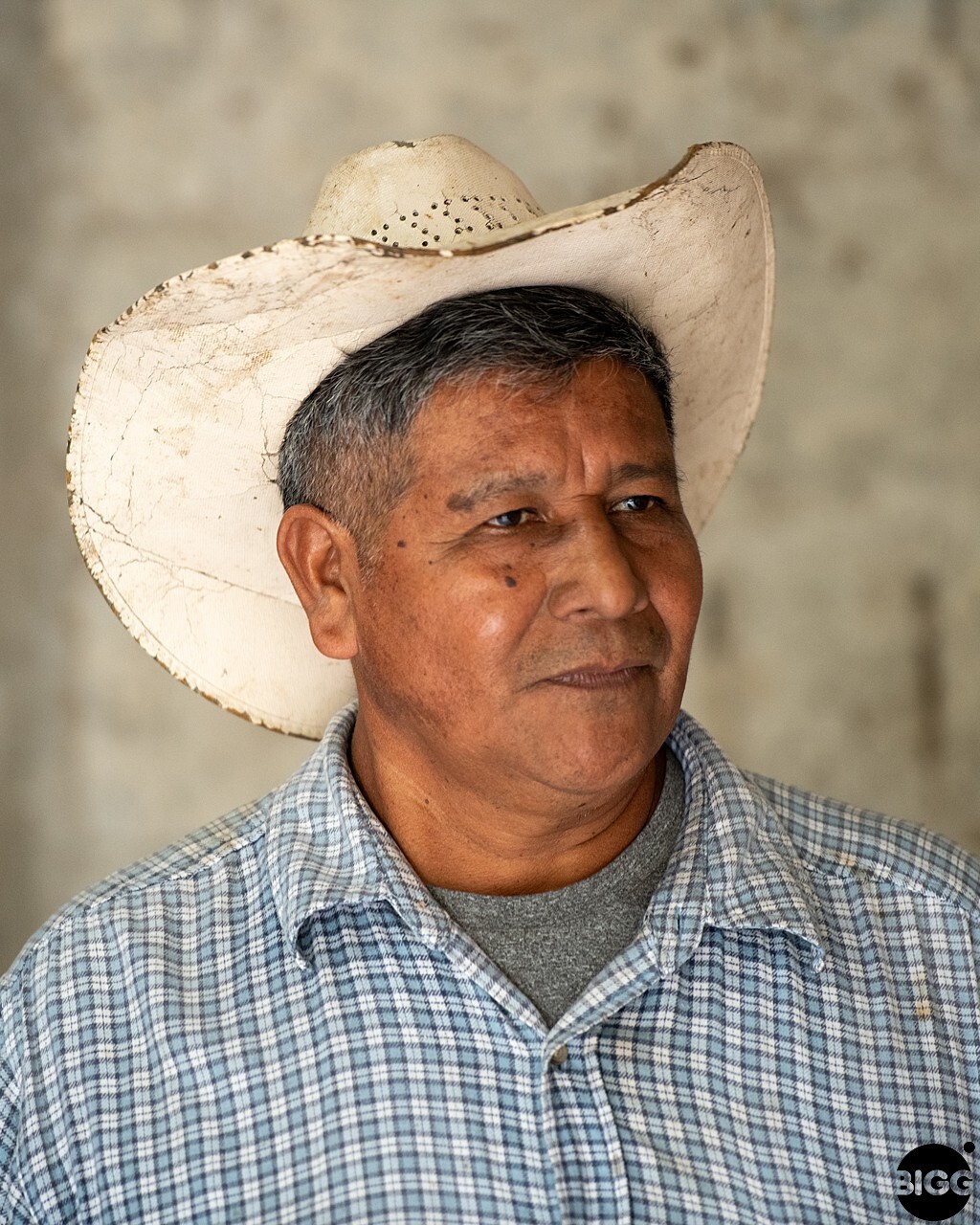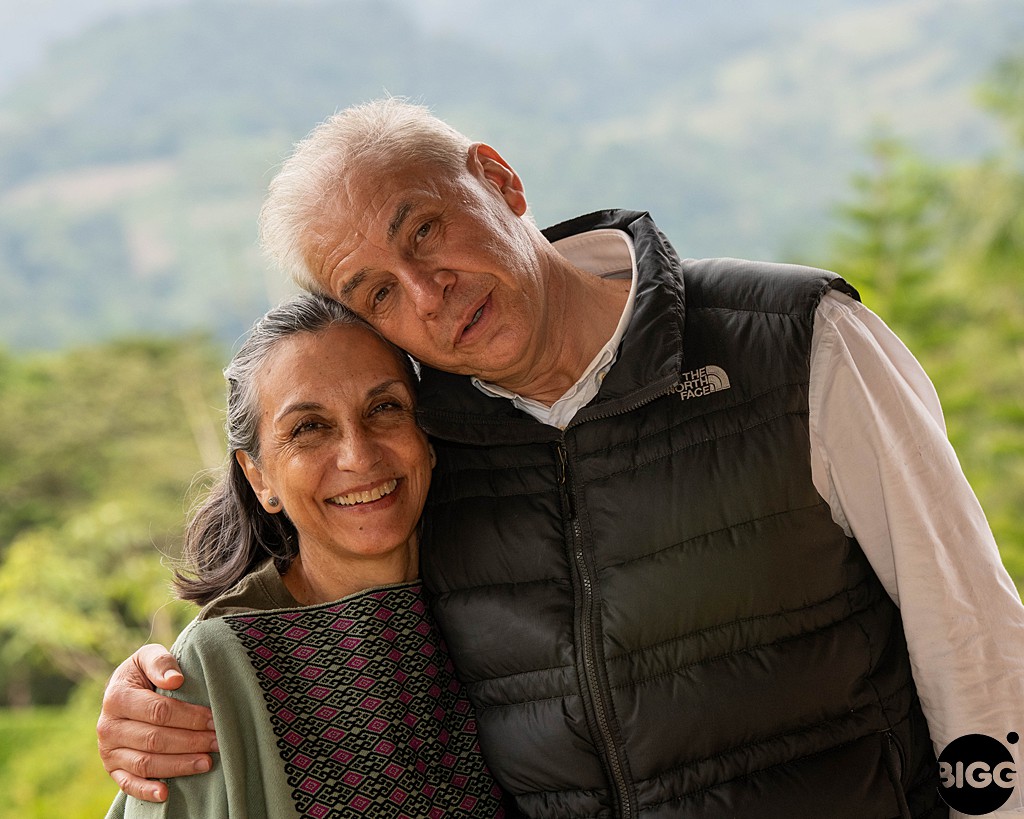By Michelle Fish
Back in 1987, Pascual Hernandez Guzman was working his 15 hectares (37 acres) of coffee that he inherited from his father when he met a man from Veracruz. The man was looking to buy parchment — coffee that has been depulped and dried — for his family’s processing business. His name was Pascual Castillo, who today is our Farm-Direct partner from Finca la Fortaleza.
You don’t always know in real time that you’re forging one of the most important relationships of your life. I doubt that the two Pascual’s had any idea on that day how consequential that meeting would become over the decades. But when you see them together now, you can feel the deep bond of mutual respect and trust that almost 40 years of doing business together has created.
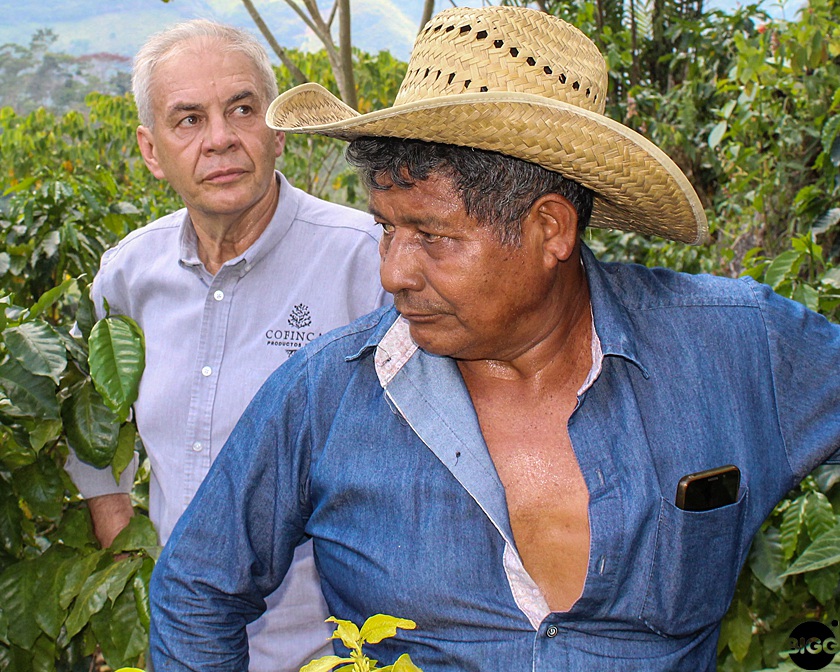
* L-R: Pascual Castillo, Pascual Hernandez Guzman
A Legacy of Coffee
Pascual Hernandez learned everything he knew about coffee from his father. He, in turn, learned everything he knew from his father before him. And so it goes, back down the generations. Coffee has always been the family legacy. Today, his four sons, two daughters, and their families are all involved to some extent in the coffee production on his land. It is most definitely a family affair.
Although it has often been hard to stay in the game, between the collapse of coffee prices, regional revolution, and the ravages of climate change, Pascual Hernandez feels a deep commitment to his family’s land and their legacy. Even the name of his community – El Chich, which translates to “the blood” – evokes a sense of rootedness and connection to place.
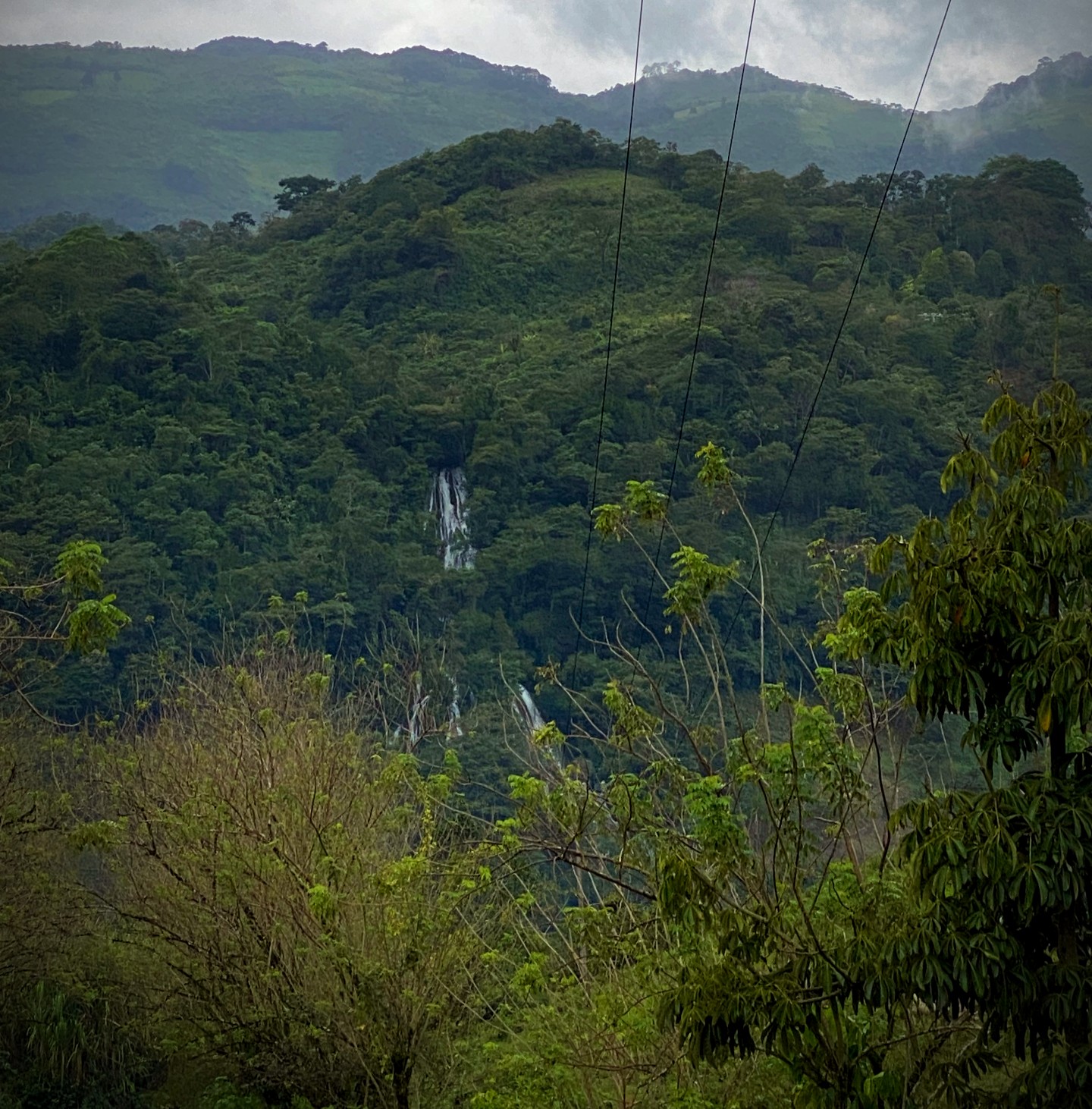
The Place
And what a place it is! Carved out of the side of a mountain, it is a tropical paradise of flora and fauna, with a pristine river that runs through the heart of it. Maintaining this beautiful landscape is yet another thing that Pascual takes very seriously.
He and his family produce washed coffee, which means that a significant amount of water is used to depulp and ferment the cherry. They have built a system of underground tanks that capture and purify the water so that it doesn’t leach into the river, and it can be used for other purposes. In fact, they have been so successful in their water processing that Pascual Castillo and Maria Esther Sault use their farm as a teaching opportunity for other producers to learn how to reduce their environmental impact on water sources.
Meeting Pascual the First Time
Back in January of 2023, Bob and I travelled to Chiapas to finalize the details of our Farm-Direct partnership with Finca la Fortaleza and the four small producers that will make up 40% of our annual purchase, including Pascual Hernandez. He is the largest of the four and has known Pascual Castillo since the days when they were both just getting started on their coffee journey.
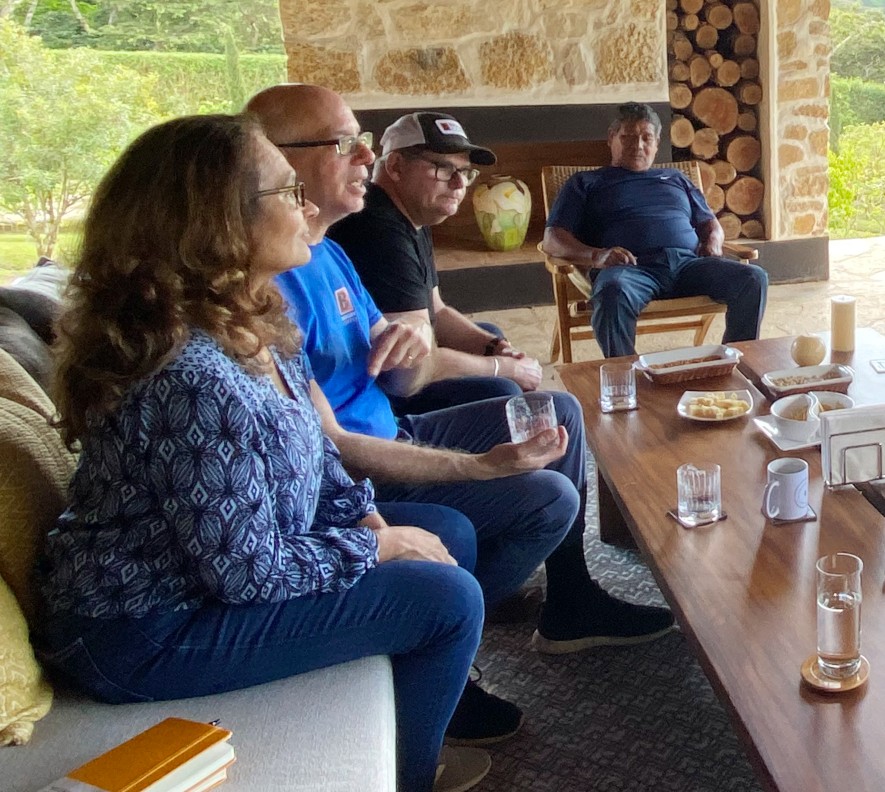
Pascual Hernandez on the right, as our One BIGG Island in Space cohort (Miriam and Hector Morales and Bob Fish) meet him for the first time at Finca la Fortaleza in January, 2023.Pascual Castillo has been there as a friend and a partner to Pascual Hernandez through some of the most turbulent times in both their lives. When the Zapatista revolution broke out in 1994, Pascual Castillo was one of the few who risked driving trucks into the region during harvest time so that the producers could still sell their crop and feed their families. And when the total devastation of the Roja epidemic wiped out his entire production in 2014, it was Pascual and Maria Esther and their work of creating Finca la Fortaleza, that gave Pascual Hernandez and his family a path forward in coffee.
And now, he was sitting at a table with us, the buyers, about to embark on a journey that would pay him a sustainable price year over year for his coffee. His arms were crossed for much of the time, and his expression was grim. It was clear to us that he didn’t actually believe that we were real. But he was there because his good friend Pascual Castillo had told him it was a big opportunity. I think as far as Pascual Hernandez was concerned, the jury was still out.
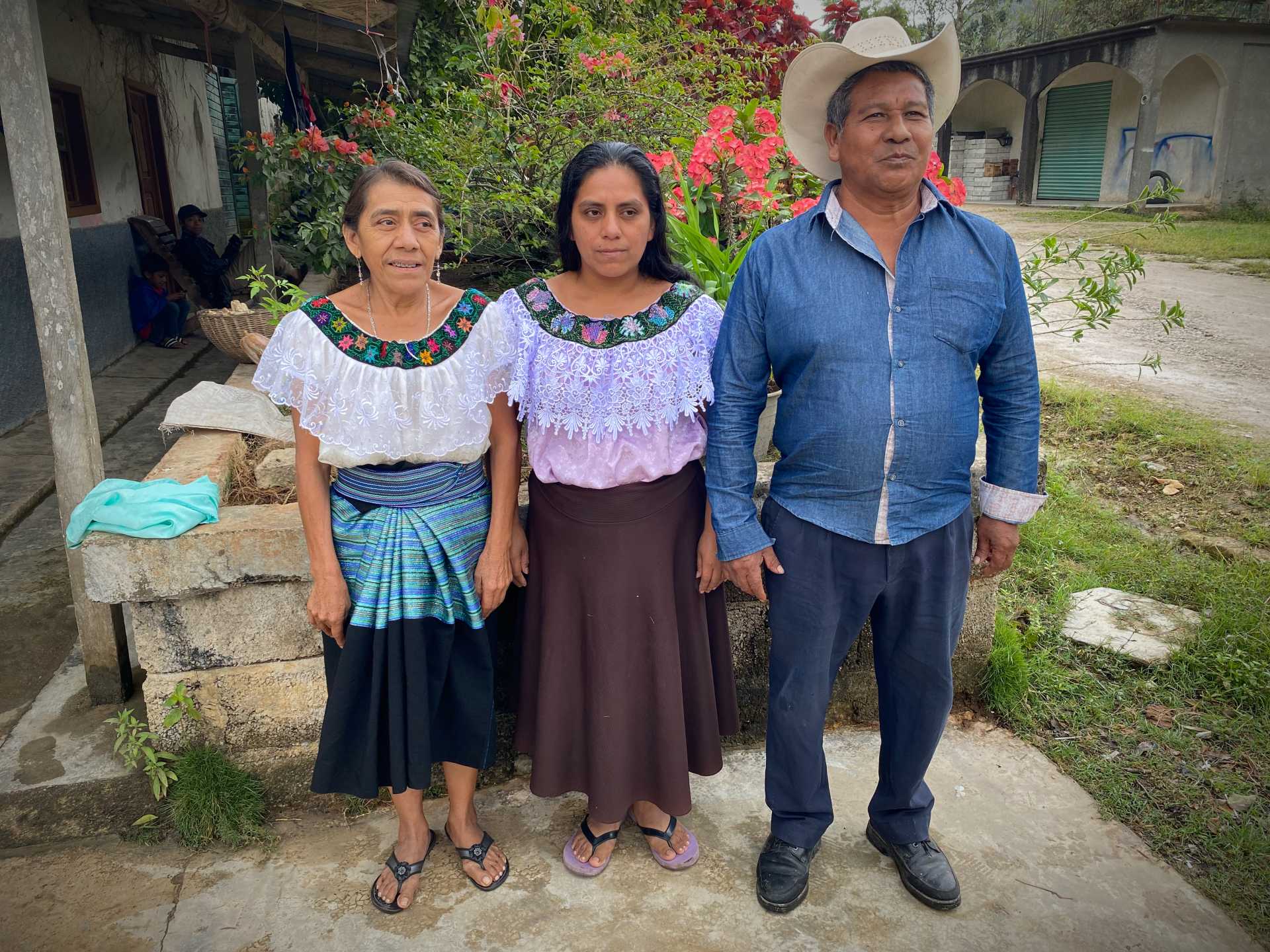
L-R: Juana, Elvia and Pascual Hernandez
Walking the Land
We took the three hour drive up to El Chich to meet Pascual’s wife, Juana, two of their daughters, Elvia and Caroline, and several of their grandchildren. Part of their land, which had once been only coffee, had been transitioned to corn (Juana’s project), and cattle, in the wake of 2014. Even as they planted the new varieties they received from Finca la Fortaleza, and began implementing better agronomy, they still had a large family to feed. The cattle and the corn had kept them going in the interim.
The new varieties are rust resistant, but they require more work and maintenance, and it has taken time to get their production back to pre-roja levels. But now, their coffee is starting to thrive again. Their production is increasing, and they have plans to reconvert all of the corn back to coffee.
We were standing on the edge of the corn field with Juana. She had been largely silent through much of our visit. But now, she walked up to me and took my face in both her hands and started to cry. Speaking in her native language of Tzeltal, she told me that in more than 30 years of being in coffee, no end user had ever come and walked her land. She is not in the best of health and is losing her vision. But she told me that she was happy that she had lived to see this day, because we were the answer to a prayer.
For us, that is a very solemn and serious responsibility. The promise of direct trade is something that many producers dream of, but few think will actually happen to them. And rarely is the promise for a real, life-time partnership that will endure, as Pascual Hernandez and Pascual Castillo’s has. We know that it will take time. And we were looking forward to our next visit.
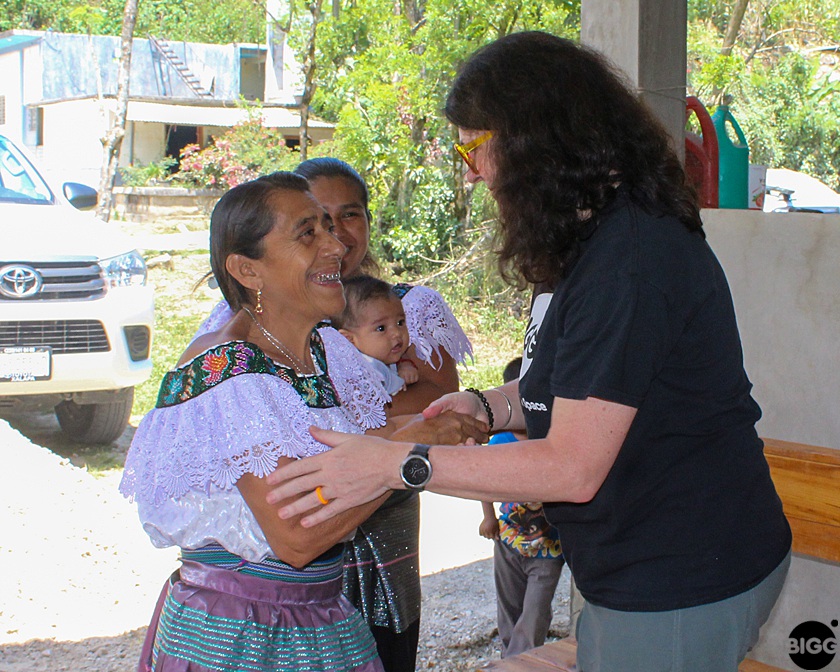
* Meeting Juana and her daughter again in March, 2023.
March, 2023
When we returned in March, harvest was over, and the small producers had been paid in full for their crop at the price we had told them we would pay. No surprises, no disappointments. On our last visit, we had been more like a hoped-for promise than a real partnership. Now, things were more concrete.
And you could feel the difference in the atmosphere on the farm when we arrived. Pascual Hernandez was surrounded by all of his children and many of his grandchildren. And he and Juana were in celebration mode. She had prepared a special lunch for us. But first, Pascual Hernandez wanted to talk to us.
He is a leader among his neighbors in El Chich. He has been working with them to share the new agronomy he has learned from Finca La Fortaleza, and to help them improve their quality and their yield. He told us that he believes that our partnership could provide hope and economic opportunity for his entire community. And he asked us to join him in meeting with all of the small producers in the area.
We packed up in to our trucks, and drove the few miles to meeting spot. We took our places among the wooden chairs that had been set out for our arrival. And we looked out at the hopeful faces. They had many questions for us. They, too, had never seen an end user on their lands. And they wanted to know if what we say is real. And if they can be a part of it.
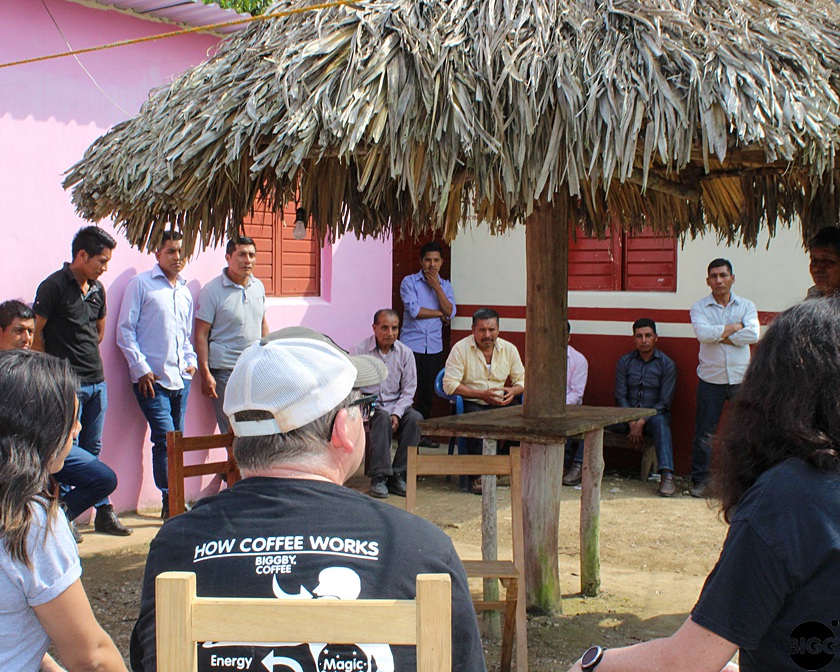
* Meeting Pascual’s community.Although we aren’t ready for that yet, we are hopeful that as our partnership grows, there will be the opportunity for more small producers in his community to participate. We will have the chance on future visits to walk their lands, too. And to see how they treat their people and their environment. We already have a sense of their commitment to community.
The future in Tzeltal
We made the drive back to Pascual Hernandez’ home and sat down to some of the best chicken soup we’ve ever tasted. And we’ve tasted plenty! But there is something to be said for sitting down to eat in a spirit of mutual celebration that makes everything taste a little lighter and brighter.
We talked through lunch, and asked Pascual a barrage of questions about his plans and his hopes for his farm and his family. His responses surprised us.
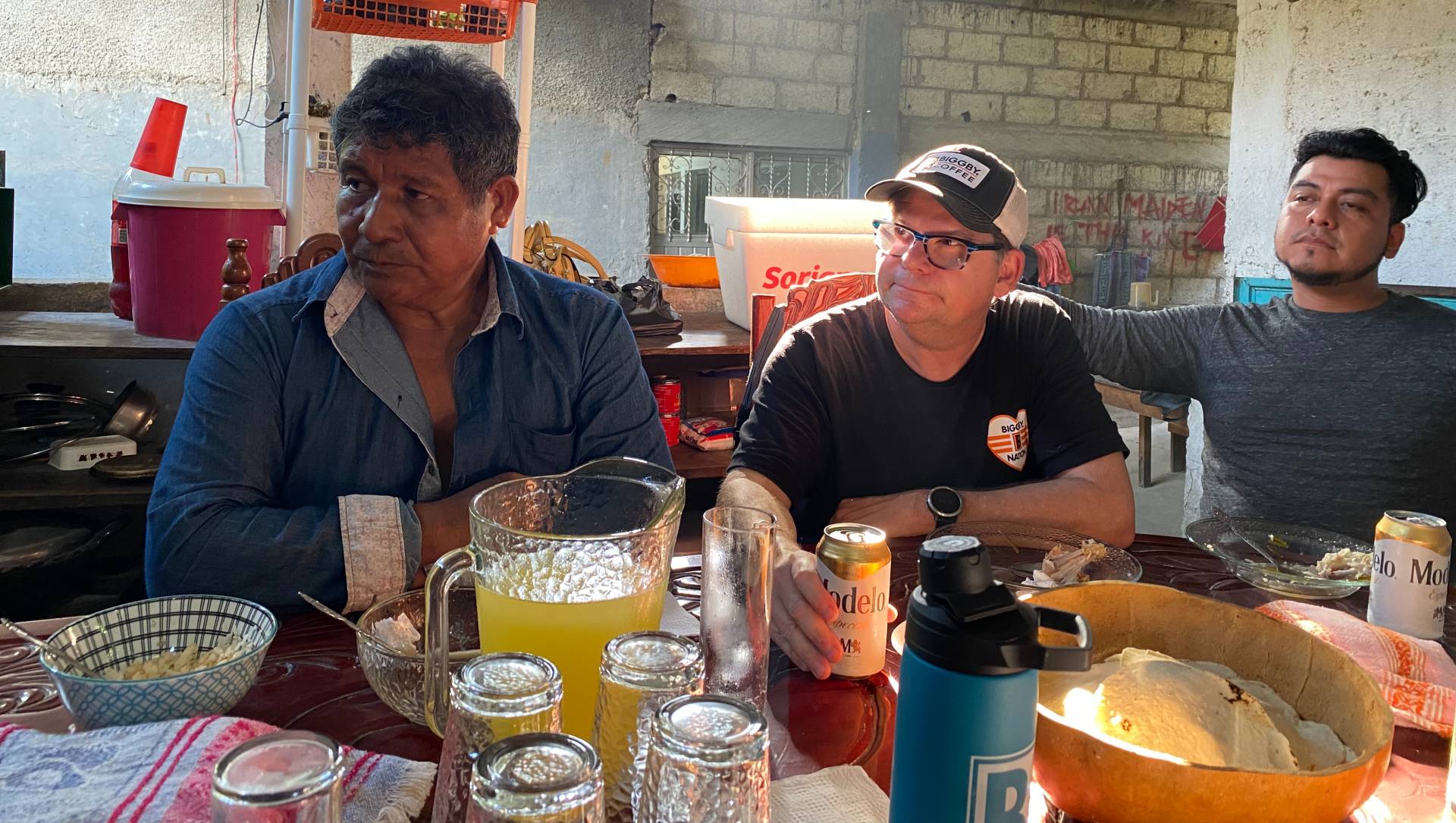
No matter how big the dream we were asking him to describe, his answer was always about practical things he could do on his land in the next year, or ways he could support his family in the coming months.
Then Maria Esther told me that there is no real translation for future dreams in Tzeltal. They just don’t have the words for that kind of concept. Life is the present, and the very near future. Here’s to the concept of a big, prosperous, dream-filled future beginning to take root in El Chich.
*Photo by Ivan Vazquez, edited by Kim Zahnow.

